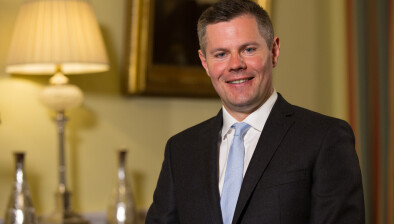Councils spend ‘hundreds of millions’ servicing £11.5bn of long-term debt
 Scotland’s councils are spending more than half of the money they bring in from Council Tax simply to pay interest on debts, according to the Scottish Greens.
Scotland’s councils are spending more than half of the money they bring in from Council Tax simply to pay interest on debts, according to the Scottish Greens.
A report by the party found that the long-term debt being held by Scotland’s 32 local authorities totals £11.5 billion including loans from the UK Treasury and private banks.
The Green MSPs are calling for the debts to be written off, so that local authorities can focus their resources on protecting public services.
The report, Local Government Debt in Scotland, uses data compiled by People vs PFI and Debt Resistance UK and shows that some councils are facing up to nine per cent interest rates, finding themselves trapped after taking out high-risk loans from private banks.
In 2015-16 Scottish local authorities spent almost £1bn on repayments to the Public Works Loan Board of the UK Treasury and still owe the Board a total of almost £9bn.
Comhairle nan Eilean Siar (Western Isles Council) spends over 100 per cent of its Council Tax revenue servicing its debts, while Clackmannanshire, Dundee, Edinburgh, Glasgow, Highland, Inverclyde, South Lanarkshire and West Dunbartonshire councils all spend at least half of their Council Tax revenue servicing debt.
The report also finds that Scotland has the highest proportion of PFI/PPP debt per person in the world.
Patrick Harvie MSP, finance spokesperson for the Scottish Greens, said: “Given the crisis facing local authority finances, it’s unacceptable that councils are using Council Tax revenue to deal with historic debts that enrich private banks and the UK Treasury. The unethical nature of the loans from private banks justifies cancellation of these payments, and the Westminster Government should write off council debts to end the unfair squeeze on local services.
“We must also improve oversight so that our local authorities aren’t forced into such high-risk financing in future. A Scottish Government-controlled Loans Board would offer greater stability and value, and I would encourage Scottish Ministers to explore the idea.”
Comhairle nan Eilean Siar said it borrowed the money to invest in the local infrastructure and not to help them balance the books.
A spokesman for the council told the BBC: “These figures reflect the fact there has been substantial investment in the islands because of the needs of the islands. The investments have been in the much-needed improvements in the infrastructure of the islands.
“Our low population base and lower than the Scottish average housing values means that revenue from council tax is very low and only accounts for about 8 per cent of our total revenue, which is mainly made up of government grant.”
He added: “The servicing of the debt is not based on council tax so, whilst it is a high percentage figure, that simply reflects the investment that the Comhairle and government recognised was needed in the islands.”
Local government umbrella body COSLA said councils borrowed money “extremely responsibly” and worked to a code when they did this.
A spokesman said: “Loans are taken out to fund vital infrastructure which is integral to the services which are provided to support communities. Councils operate within strict guidelines through well-established Treasury management policies and they apply the Prudential Code on affordability to ensure that debt is not a burden on the council or its communities.
“Nonetheless, we are all very aware that councils are facing extremely difficult financial circumstances, with the prospect of another difficult financial settlement, and anything that can be done by the UK government, as part of the Chancellor’s Autumn Statement, to help alleviate these pressures and free up resources to protect services to our communities would be welcome.”








